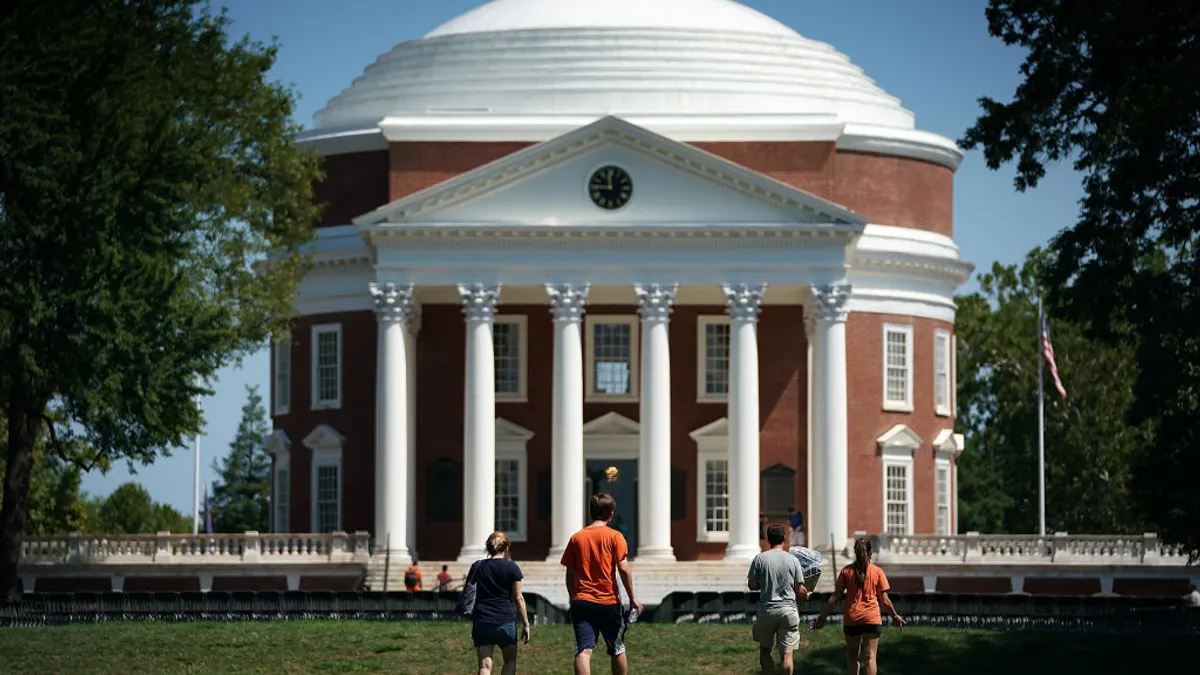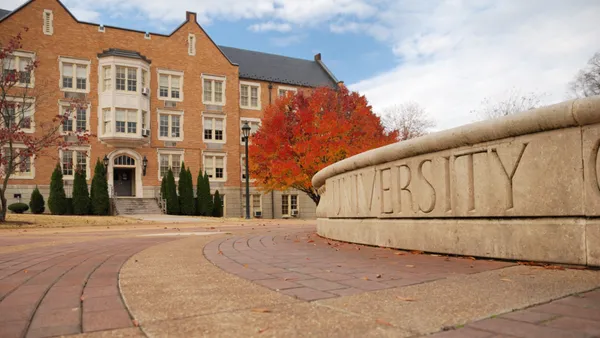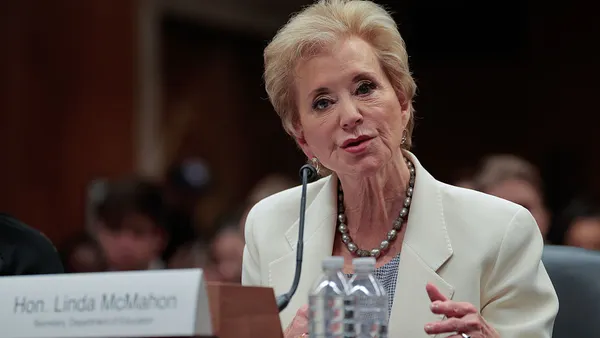Dive Brief:
- University of Michigan professor of education, public policy, and economics Susan Dynarski argues the United States has a dropout crisis that is particularly acute among first-generation college students who do not benefit from the wisdom and experience of their relatives as they navigate the higher education system.
- Dynarski writes for The New York Times that coaching programs that cultivate soft skills like time management and organization, and offer personalized, concrete discussions with advisors who understand college life have seen promising results.
- A City University of New York program that tries to fill these gaps for first-generation students has doubled the three-year graduation rate and researchers plan to test its transferability to three community colleges in Ohio.
Dive Insight:
As the cost of college rises and elected officials clamor for greater accountability from the higher education sector, the focus on student outcomes is becoming more intense. Institutions are tracking data and coming up with innovative retention and success programs, identifying new groups of at-risk students, and tailoring intrusive advising programs to offer the extra support students need.
A range of nonprofits offer supports specifically for first-generation college students. Some of them partner with institutions, while others simply work alongside them. Virgil Jones, CEO of Bottom Line, which supports first-gen students through the college application process and then their degree programs, says it’s unfair for colleges to accept students and then fail to provide the resources they need to graduate. That perspective is getting increasing support from government officials wanting a return on federal financial aid investment. With a rewrite of the Higher Education Act overdue, major regulatory changes could be coming in the next few years.









